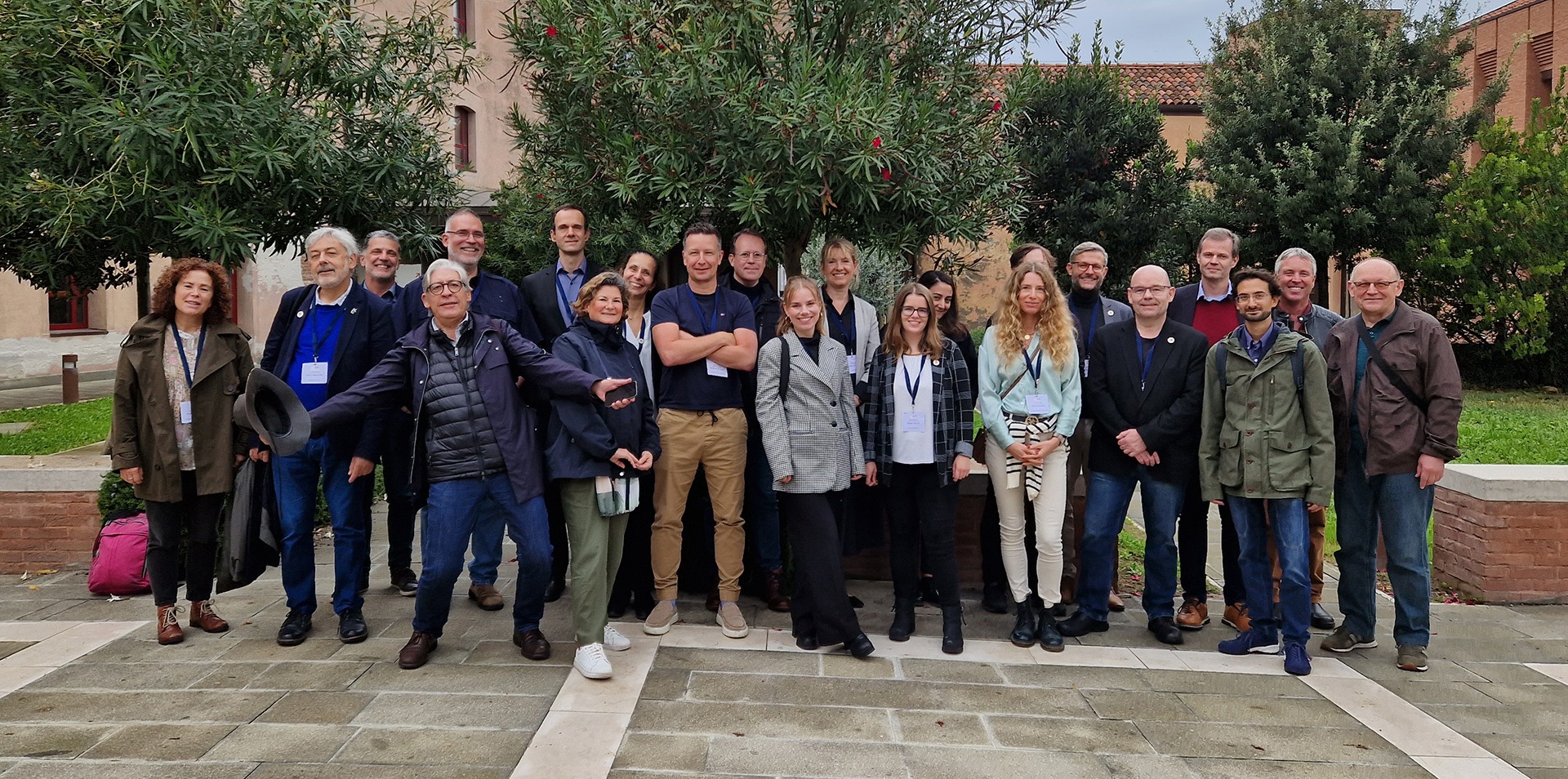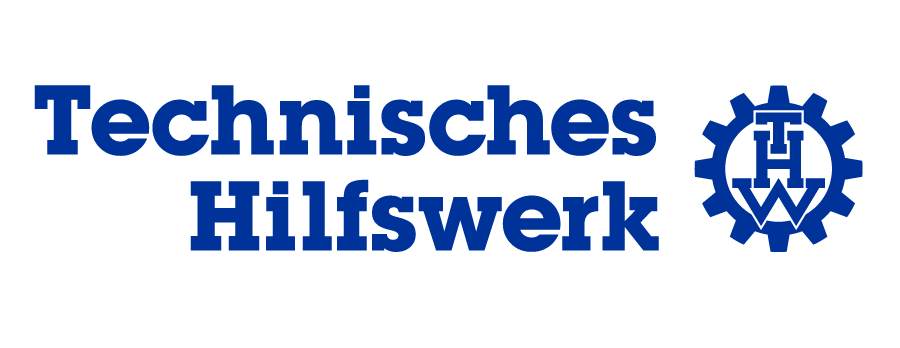Consortium
The AGILE Consortium is a collaborative endeavour comprising 15 diverse partners, strategically drawn from various sectors and regions to foster a comprehensive and dynamic approach. Hailing from five European Union countries - Germany (Johanniter-Unfall-Hilfe e.V. - JUH, Prepared International – PPI, ARTTIC Innovation GmbH - ARTTIC), Italy (Centro Euro-Meditterraneo sui Cambiamenti Climatici - CMCC), the Netherlands (Delft University of Technology – TUD, Veiligheidsregio Rotterdam-Rijnmond – VRR, Gemeente Rotterdam - COR) Portugal (Factor Social – FS, Agencia de Energia e Ambiente da Arrabida - ENA), and Romania (Ministerul Afacerilor Interne - DSU) - the consortium showcases a rich tapestry of European perspectives. Additionally, it involves five international partners, thereby adding a global dimension with collaborators from Iceland (National Commissioner of the Icelandic Police - IDCP), Japan (Tohoku University), Ukraine (G.E. Pukhov Institute for Modeling in Energy Engineering of the National Academy of Sciences of Ukraine - PIMEE), the United Kingdom (University College London - UCL), and the United States of America (Pacific Disaster Center - PDC).
With a holistic approach encompassing non-profit organizations and authorities at national, regional, and local levels, the consortium is enriched by esteemed universities, expert organizations, and a scientific think tank, positioning it to navigate challenges with innovation and strategic insight. This collective effort embodies geographical diversity, cross-sectoral representation, and a multi-stakeholder approach, positioning the AGILE Consortium to address complex issues at the intersection of its members' expertise.
Consortium
The AGILE Consortium is a collaborative endeavour comprising 15 diverse partners, strategically drawn from various sectors and regions to foster a comprehensive and dynamic approach. Hailing from five European Union countries - Germany (Johanniter-Unfall-Hilfe e.V. - JUH, Prepared International – PPI, ARTTIC Innovation GmbH - ARTTIC), Italy (Centro Euro-Meditterraneo sui Cambiamenti Climatici - CMCC), the Netherlands (Delft University of Technology – TUD, Veiligheidsregio Rotterdam-Rijnmond – VRR, Gemeente Rotterdam - COR) Portugal (Factor Social – FS, Agencia de Energia e Ambiente da Arrabida - ENA), and Romania (Ministerul Afacerilor Interne - DSU) - the consortium showcases a rich tapestry of European perspectives. Additionally, it involves five international partners, thereby adding a global dimension with collaborators from Iceland (National Commissioner of the Icelandic Police - IDCP), Japan (Tohoku University), Ukraine (G.E. Pukhov Institute for Modeling in Energy Engineering of the National Academy of Sciences of Ukraine - PIMEE), the United Kingdom (University College London - UCL), and the United States of America (Pacific Disaster Center - PDC).
With a holistic approach encompassing non-profit organizations and authorities at national, regional, and local levels, the consortium is enriched by esteemed universities, expert organizations, and a scientific think tank, positioning it to navigate challenges with innovation and strategic insight. This collective effort embodies geographical diversity, cross-sectoral representation, and a multi-stakeholder approach, positioning the AGILE Consortium to address complex issues at the intersection of its members' expertise.
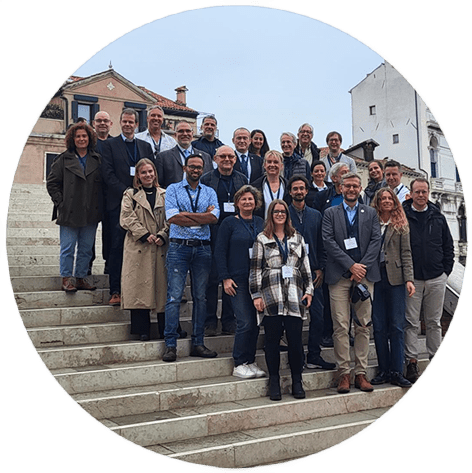
Europe
Asia
Japan
North America
USA / Hawaii

Johanniter-Unfall-Hilfe e.V. - JUH
Berlin, Germany
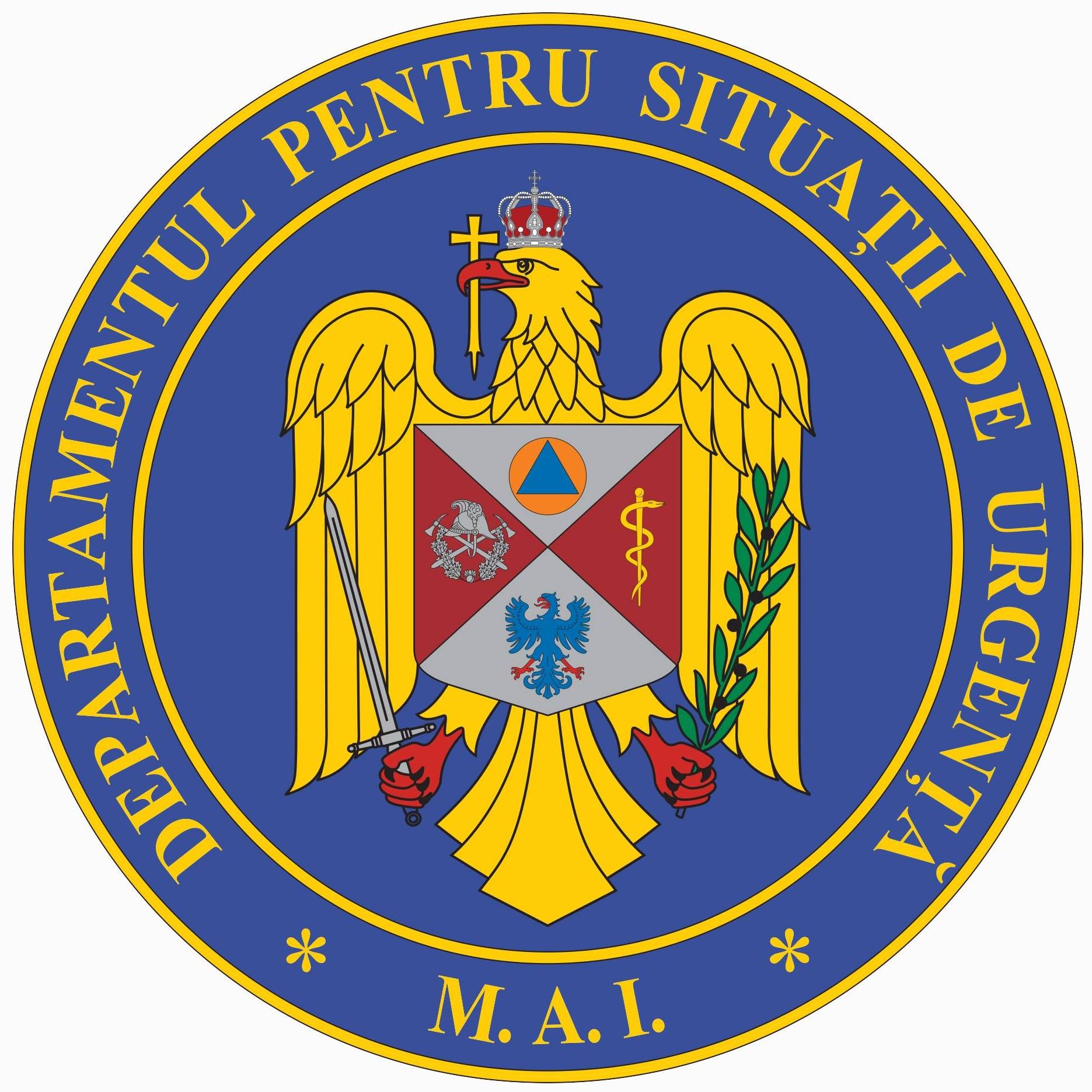
Ministerul Afacerilor Interne
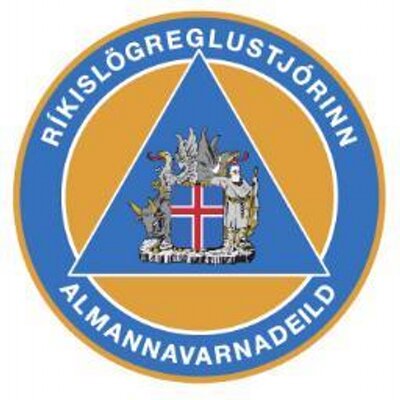
National Commissioner of the Icelandic Police
Reykjavik, Iceland

Agencia de Energia e Ambiente da Arrabida
SETUBAL, Portugal
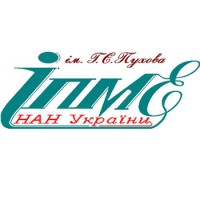
G.E. Pukhov Institute for Modelingin Energy Engineering of the National Academy of Sciences of Ukraine
KYIV, Ukraine
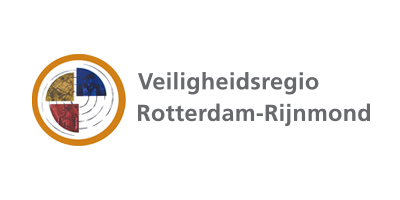
Veiligheidsregio Rotterdam-Rijnmond
Rotterdam, Netherlands
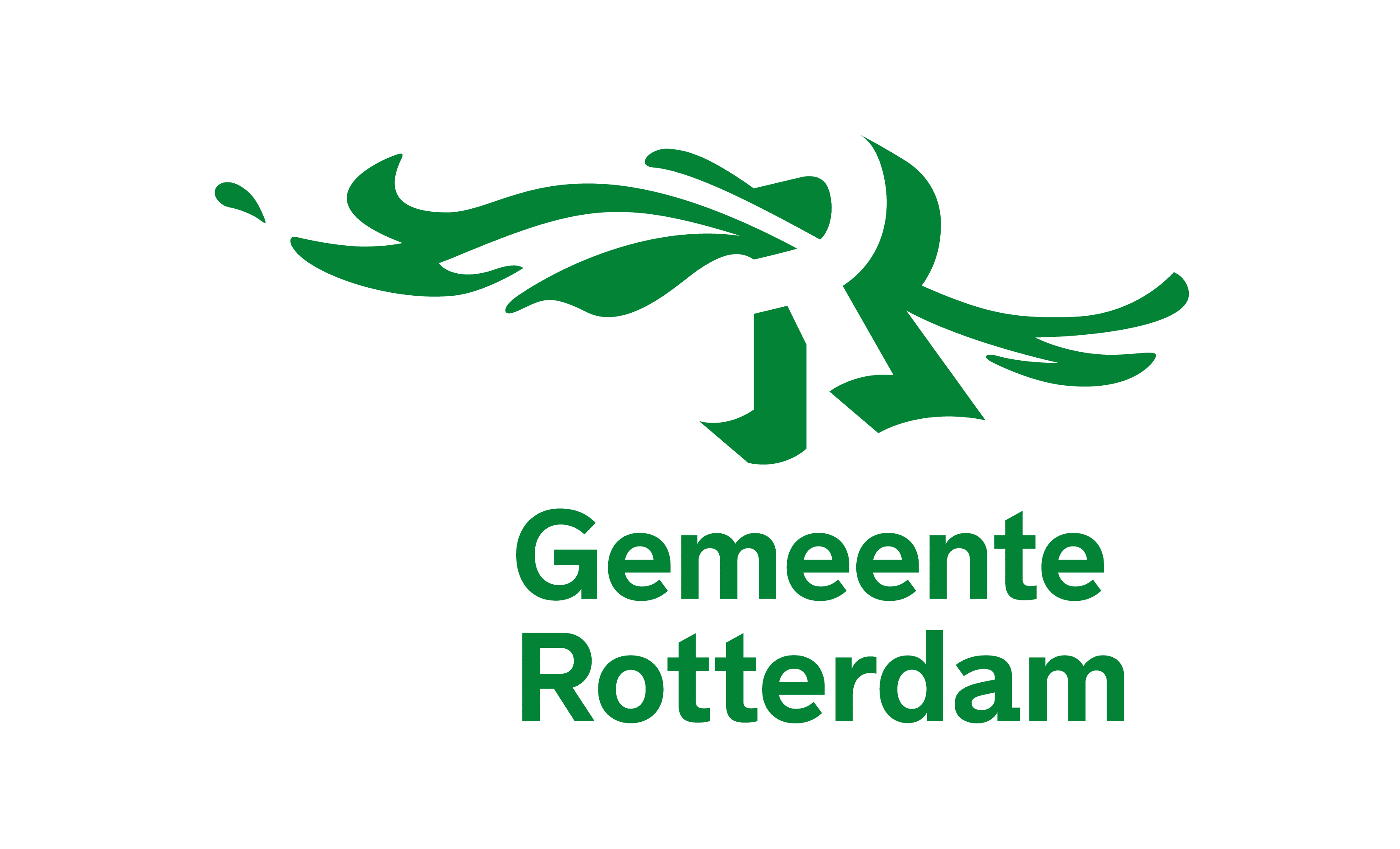
Gemeente Rotterdam
Rotterdam, Netherlands

PPI - Prepared International UG
Samerberg, Germany

Technische Universiteit Delft
Delft, Netherlands
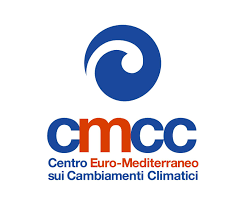
Fondazione Centro Euro-Mediterraneo sui Cambiamenti Climatici
Lecce, Italy

Factor Social - Consultoria em Psico-Sociologia e Ambiente LDA
Lisboa, Portugal
ARTTIC Innovation GmbH (AI)
Munich, Germany

Pacific Disaster Center - University of Hawaii
Kihei Hi, USA

University College London
London, United Kingdom
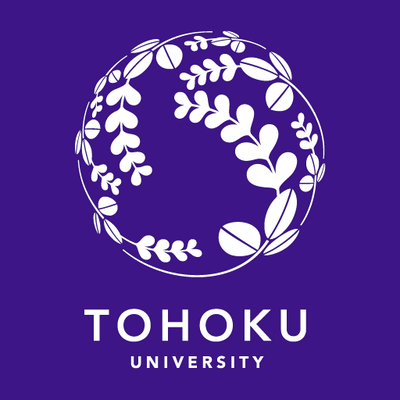
Tohoku University
Miyagi, Japan
Contact details
Johanniter-Unfall-Hilfe e.V
Lutzowstrasse 94, 10785
Berlin, Gemany
ARTTIC Innovation GmbH
Oskar-von-Miller-Ring 29, 80333
Munich, Germany

Project Coordinator
JUH
Gordana Čveljo

Deputy Project Coordinator
JUH
Rabea Schulz
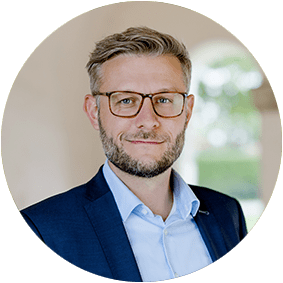
Coordination Support & External Cooperation Manager
AI
Andreas Seipelt

Communication & Dissemination Manager
AI
Manoj Kumar
Germany
Johanniter-Unfall-Hilfe e.V. ( JUH)
About
Johanniter-Unfall-Hilfe e.V. (JUH) is a German non-profit organisation dedicated to excellence in medical care, emergency medical services, civil protection and disaster relief. The JUH is active throughout Germany and is part of the international Order of St John.
JUH is one of the four statutory organisations that form the backbone of the German ambulance service and medical civil protection system. Its core competencies are rescue and ambulance services, mobile care activities, home alarm services and disaster relief.
On an international level, Johanniter International Assistance ( is active in various areas and phases of disaster relief and humanitarian aid, with core competencies in primary health care, rehabilitation of people with disabilities, and disaster preparedness. In June 2017, the Johanniter Emergency Medical Team (EMT) became the first EMT 1 mobile unit worldwide to be classified under the EMT initiative of the World Health Organization (WHO).
The Competence Center for European Civil Protection and Disaster Assistance (EUCC) is a department within the JUH, acting as a Focal Point for EU affairs in the context of civil protection. With the EUCC, the JUH has actively been involved in the Union Civil Protection Mechanism (UCPM) since 2006 (e.g. providing response assets and disaster response experts for UCPM missions, conducting trainings/exercises, providing trainers and lecturers). The EUCC is in charge of mostly international projects in the field of civil protection and disaster management. In projects, the EUCC takes on the role of project coordinator, work package leader and/or end-user, e.g. validating new technologies and methods developed in the projects. Through the EUCC, the JUH has been the coordinating beneficiary of multiple projects of the Directorate-General for European Civil Protection and Humanitarian Aid Operations (DG ECHO).
Role in the project
JUH has several roles in AGILE. On the one hand. JUH is an end-user and has a practitioner perspective with the lead of WP4. On the other hand. JUH is the project coordinator and focuses on good collaboration, timelines and exchange between scientists and practitioners.
JUH, as the Coordinator of the AGILE Consortium, oversees the effective achievement of the project objectives and will be involved in the majority of the tasks within the project. Together with the Scientific Lead of the project, ensure the collaboration and exchange between scientists and practitioners. We aim to involve stakeholders within the JUH and the civil protection community of Germany and beyond to ensure a high representation of the end-user perspective. JUH will lead and facilitate the implementation of the tier 1 stress tests with various project partners and stakeholders from all over Europe. In that regard, JUH will host the stress-test related to the rescEU EMT, the first pan-European field hospital consisting of 20 specialised teams.
Gordana Čveljo
Project Coordinator
Bio: Studied Political Sciences/American and Croatian/Serbian language and literature; Several years of experience in international cooperation. Team leader and coordinator of an international governmental program for health.
Rabea Schulz
Role in AGILE: Deputy Project Coordinator; Role in EUCC/JUH: Project Coordinator
Bio: Studied Rescue Engineer; proceeding within the training path of the European Civil Protection Mechanism; 2 years of experience in the coordination of projects within the field of European Civil Protection, especially training and exercises.
Romania
Ministerul Afacerilor Interne (DSU)
About
In 2014, an update of the legal framework (Government Emergency Ordinance 1/2014) led to the creation of the Department for Emergency Situations within the Ministry of Internal Affairs. The Department is an operational structure without legal personality, responsible for the national coordination of emergency prevention and management actions. It oversees the provision and coordination of human, material, financial, and other resources required to restore normality. This includes specialist first aid and emergency medical care in Emergency Care Units and Centers.
The Department for Emergency Situations coordinates the General Inspectorate for Emergency Situations and the General Inspectorate of Aviation (concerning medical missions). It also performs the operational coordination of county ambulance services and Bucharest–Ilfov region, Emergency Rooms from the Emergency Hospitals, and public mountain rescue services. Dr. Raed ARAFAT, Secretary of State and a medical doctor, heads the Department for Emergency Situations. He is the founder of the Romanian SMURD system (Mobile Service for Emergency, Reanimation, and Extrication), an integrated public service without legal personality, functioning within the organizational chart of inspectorates for emergencies, along with specialized personnel from emergency departments of hospitals.
DSU has extensive experience in conducting Civil Protection projects and hosted a large medical exercise in late 2018 under the framework of EU MODEX. DSU was a consortium member of the 2018 IDMEX tender (Plugin and HNS Exercises), INEGMA-E2 project, FORMATEX23 project, consortium leader for the INDIMA project, EU HNS TTX tender of DG ECHO, and many others.
Role in the project
In AGILE, DSU is planned for the implementation of Stress Test Tiers (STT) 1 and 2. Especially, the implementation of STT1-2 (Task 4.2: Implementation of STT1) and STT2-1 (Task 4.3: Implementation of STT2). This will be done by organizing tabletop exercises, for which the methodology will be developed by AGILE partners.
In addition, a member from the DSU team is nominated as part of the Security Advisory Board of the project, working together with 2 other members to fulfil the specific requirements.
Bogdan Pop, M.D., Ph.D.
Project Director and Deputy Director General in the Department of Emergency Situations. Manages EU-funded projects, ensuring quality control, client orientation, and conflict resolution.
Dr. Bogdan Pop serves as the Deputy Director General at the Department of Emergency Situations, excelling in the coordination of various medical structures. With a wealth of experience, he has actively managed EU-funded projects, represented DSU in consortiums, and led projects such as INDIMA, EU HNS TTX, ResponSEE, INEGMA-E2, BeEmTel, and EU MODEX Cycle 12 Lot 3.
Marcel Tenu
Assistant Project Director, Medical Emergency Monitoring and Coordination Service at the Department for Emergency.
Marcel Tenu focuses on monitoring and coordinating emergency reception structures, public ambulance services, and SMURD. Additionally, he actively participated in civil protection exercises, including EU HNS TTX in Jordan and Moldova, and contributed to preparing the Vigorous Warrior & Clean Care 2024 exercise.
Cornelia Madalina Dusciuc, Ph.D.
Expert, Department for Emergency Situations.
Dr. Cornelia Madalina Dusciuc has been working at the Department for Emergency Situations for 10 years focusing on preparing emergency services, with key responsibilities in operational control and inspection. She actively participates in civil protection exercises, contributing to events like MODEX 2018 and Vigorous Warrior in 2019.
Andra Madalina Vieriu, M.D.
Expert, Emergency Medicine, Qualified First Aid and Disaster Medicine, Department for Emergency Situations.
Dr. Vieriu is a senior emergency physician at Oradea County Emergency Clinical Hospital, specializing in intra-hospital emergency care, pre-hospital assistance, telemedicine, neonatal transport, and medical dispatch within the National Single Emergency Call System 112; actively involved in organizing medical activities and participating in various working groups and training courses.
Florin Macovei
Expert, Medical Emergency Monitoring and Coordination Service, Department for Emergency Situations.
He monitors and coordinates emergency reception structures in public health units, public ambulance services, and SMURD. He has participated in civil protection exercises, including FSX FORMATEX 23, FSX DOMINO 22, EU HNS TTX Jordan 22, and EU HNS TTX Moldova.
Iceland
National Commissioner of the Icelandic Police (IDCP)
About
Civil Protection in Iceland falls under the Ministry of Justice, with the National Commissioner of the Icelandic Police (NCIP) leading the charge. The NCIP oversees the Department of Civil Protection and Emergency Management, responsible for daily administration and national coordination. They manage risk analysis, decide alert levels, and can declare a state of emergency, ensuring effective coordination and support measures to reduce risks.
At the operational level, the NCIP directs emergency operations, procuring and delivering necessary assistance for affected areas. Cutting-edge data management and risk mapping are integral to Iceland’s advanced civil protection system, facilitating disaster risk management at national, regional, and municipal levels through a web-based portal.
Within this structure, the Civil Protection and Security Council (CPSC) formulates government policy, while the Minister of Justice issues regulations. Mr. Vidir Reynisson oversees the IDCP, and the NCIP, representing Mr. Reynisson, handles alert levels, monitors measures, and heads the IDCP and National Crisis Coordination Centre (SST). The SST includes key national response bodies, ensuring effective operational and coordination actions in emergencies. Regionally, the Civil Protection Committee (CPC) oversees local responsibilities, encompassing district Police commissioners, local authority representatives, and other officials with civil protection-related tasks.
Role
In AGILE the primary role of IDCP is to host stress tests and is responsible for facilitating the wider (local/national/international) stakeholder engagement for its implementation.
- Identify preparedness gaps through assessing vulnerability to HILP events for populations, infrastructures, and industries, including testing Icelandic Emergency Management’s vulnerability.
- Improve understanding of mechanically coupled processes associated with earthquakes, volcanoes, landslides, and tsunamis.
- Strengthen Icelandic Host Nation Support for large-scale disasters, emphasizing worst-case scenarios requiring international assistance, particularly through Nordic disaster management cooperation and the Emergency Response Coordination Centre (ERCC).
Iceland, the world’s largest volcanic island, stands in the far northwest of Europe, isolated with a single cable connection to the mainland. Its unique risk profile includes volcanic and weather hazards, notably active glaciers with global consequences. Despite a well-aware population and volunteer network, the low density hinders large response units. Vulnerable infrastructures, like lengthy energy supply lines and the oil reserve, underpin the proposal, supported by a decade of disaster data and collaboration with academic institutions, backed by the UK Meteorological Service.
Ólafur Loftsson
Project manager, Icelandic Civil Defense, leading international projects and implantation of HNS.
Olafur has been an experienced Search and Rescue member since 1985 and a Team Leader for ICE-SAR. As a UNDAC member since 2009, he has conducted extensive international training and missions worldwide, including in Haiti, the Philippines, Pakistan, and beyond.
Kristín Guðmundsdóttir
Security Advisory Board -AGILE. National Commissioner of the Icelandic Police, National Security Unit (NSA).
With a diverse professional background spanning the Icelandic Defense Agency, Ministry for Foreign Affairs, NordAtlantens Brygge, and the United Nations Information Centre, she specializes in records management and classified information. She excels in implementing and managing classified systems and networks, along with expertise in quality management, SOPs, and guidelines for Classified Information. In the NSA she handles classified information, ensuring compliance with EU and NATO rules, including security awareness programs, inspections, risk assessments, and overseeing personnel and physical security.
Portugal
Agencia de Energia e Ambiente da Arrabida (ENA)
About
ENA – Energy and Environment Agency of Arrábida is a non-profit association formed by public and private entities and citizens, created in 2006 by the municipalities of Setúbal, Palmela and Sesimbra under the Intelligent Energy Europe Programme.
Its location, in the Setúbal Peninsula and integrated in Lisbon Metropolitan Area, leads to very important challenges in the scope of economical, socio-demographic and territorial structuring mechanisms in a region that brings together heavy and cutting-edge technology industry, forest, agriculture and handicraft activities, tourism infrastructures and large natural areas.
ENA promotes energy efficiency, renewable energies and environmental good practices in the Arrábida Territory towards energy transition and sustainable development in areas such as:
PLANNING (Electric Mobility Plan, Local Climate Change Adaptation Plans and Sustainable Energy Action Plans under the Covenant of Mayors), CIRCULAR ECONOMY (recycling of used cooking oil for the production of biodiesel), CAPACITATION (of cities in the design of roadmaps towards climate neutrality and through decision support tools regarding energy efficiency in public buildings), AWARENESS (community involvement in behavioral change through pedagogical tools) and TECHNICAL AREA (support in energy management, in the design of energy efficient infrastructures, energy audits and implementation of energy management systems).
ENA participates actively in RNAE (http://www.rnae.pt/) – the Portuguese Network of Energy Agencies, and is an associated member of Energy Cities, being involved in the elaboration and debate of international and national policies and strategies on environment and energy, as well as specific network projects.
Role in the project
ENA boasts several key expertise for the project, including the development and evaluation of Sustainable Energy and Climate Action Plans (SEAPS and SECAPs) under the Covenant of Mayors for Climate and Energy. Their proficiency extends to communication, dissemination, and training in energy, environment, and natural resources. With a skilled team comprising energy auditing and certification experts, ENA established sustainability observatories to monitor municipal power and water consumption, and mobility patterns, and implemented projects covering natural resource management, climate change adaptation, and energy efficiency.
ENA is positioned to collaborate with project partners and stakeholders to enhance risk response planning for various areas, including high-value natural sites, river basins, urban areas, and industrial parks. Leveraging its experience, ENA aims to contribute to the development of harmonized legal frameworks and guidelines for climate change adaptation and decarbonized community growth across participating countries.
Cristina DANIEL (F)
Managing Director (ORCID: https://orcid.org/0000-0002-0447-679X)
Forest Engineering graduate with a post-graduation in Renewable Energy Sources Management, possessing ISQ and AML certifications in training and energy efficiency. Currently pursuing a PhD in Forest Sustainable Development.
Experienced in renewable energy, natural resources management, and energy efficiency policies (ICN, CBE, and Aflops). Founder and CEO of the Energy and Environment Agency of Arrábida (ENA) since 2006. Previous roles include senior expert/advisor in energy and environment for the Municipalities of Palmela and Loures (2008-2015).
Orlando PARAÍBA (M)
Technical Director (ORCID: https://orcid.org/ 0000-0002-9326-3189)
Graduated in Electromechanical Engineering and holding a Post-graduation in Energy Production and Conservation Systems.
Energy efficiency auditor since 1999, DGEG-qualified for major energy consumers. Expert in renewables, especially wind, with ENA’s technical director role since 2008. Excels in awareness projects, studies, and training for renewable energy, efficiency, auditing, and sustainable development.
João Pedro Rodrigues (M)
Environment Expert (ORCID https://orcid.org/0009-0006-5208-3372)
Master in Environmental Engineering with environmental systems profile.
Experienced in mobility, air quality projects, and environmental monitoring. At ENA since May 2023, focusing on emission calculations, overseeing Sustainable Energy Action Plans in Setúbal and Palmela, Green Libraries, Green Seal certification, and executing the environmental education project “Sustainability Briefcases” in ENA municipalities (Palmela, Sesimbra, and Setúbal).
Isabel Rodríguez (F)
Project manager
Graduated in Communication Sciences and Master in Renewable Energies and Energy Market. Experienced in institutional communication in the strategic areas of environment, energy and tourism; journalist in several Spanish mass media (radio and tv). Since February 2019, project manager at ENA and responsible for communication issues.
Fernanda Rocha (F)
Secretary (ORCID: https://orcid.org/0000-0003-1876-7165)
Graduate in Public Administration and Secretariat Course with extensive experience in secretarial and administrative work since 1991.
Managed administrative and financial aspects of training projects under Community Support Frameworks [1992-2008]. Currently serving as secretary at ENA since 2019, overseeing administrative support for National and International projects, training, and events, and handling administrative and financial reporting.
Ukraine
G.E. Pukhov Institute for Modelingin Energy Engineering of the National Academy of Sciences of Ukraine (PIMEE)
About
Established in 1981, the G.E. Pukhov Institute for Modeling in Energy Engineering (PIMEE) has evolved into a preeminent research institute, particularly excelling in modeling and simulation within the energy sector. Operating under the subordination of the National Academy of Sciences of Ukraine, PIMEE stands as a state-owned non-profit research institute. With a primary mission of providing IT technology in energetics, PIMEE offers scientific and technical support, especially focusing on cybersecurity in various domains.
Cybersecurity research holds a central role at PIMEE, encompassing fundamental and applied investigations in security policy, cyber strategy, internal security within the energy sector, environmental security, and the protection of critical infrastructure. The institute’s dedicated staff regularly conducts expertise in computer systems protection, contributing their insights to both industrial companies and government agencies.
PIMEE is also involved in several EU and international projects like GREENCO ALIOT, SPEAR and AGILE. Serving as the National Contact Point of Horizon 2020 “Secure Societies – Protecting Freedom and Security of Europe and its Citizens”, it actively supports Ukrainian teams in “Horizon 2020” and remains involved in Horizon Europe Cluster 3 National Contact Point activities, emphasizing its dedication to pioneering research and fostering global collaboration.
Role in the project
The security and resilience of Ukrainian critical infrastructure will be addressed through technological, organizational, human, and societal advancements. To illustrate the cascading effect, components such as technology, cybersecurity, and social aspects will be explored in both optimistic and pessimistic scenarios based on the state of the power network. Using Ukrainian datasets, PIMEE will analyze the cascading effects of the energy sector’s influence on other sectors of the economy and social life, with a specific focus on Industrial Control Systems (ICS).
Prof. Oleksandr Chemerys
Deputy Director, PIMEE
Extensive expertise in designing high-performance hardware, creating program models for computer simulation, and developing original programs for parallel architectures. Recent projects have focused on implementing blockchain technology in the energy sector, with a primary interest in energy digitalization, microgrids, and organizing peer-to-peer markets. A keen focus lies on the decentralization of computer systems and smart contracts. Proven track record in coordinating international projects and serving as the National Contact Point for the HORIZON-2020 program “Secure Societies.”
Dr. Vitalii Zubok
Lead Researcher, Math and Computer Modeling Department, PIMEE.
Dr. Zubok has 30 years of experience in developing and maintaining TCP/IP networks and services, specializing in global routing on the Internet. Recent endeavours focus on the methodology and tools for information security in ICT systems, emphasizing cyber and digital resilience.
Dr. Volodymyr Artemchuk
Deputy Director, PIMEE
Working as a researcher at the PIMEE since 2008 in the field of decarbonization of energy, resilience in energy, implementation of “green” certificates and tools of the European Green Deal. Specialized in risk management for HILP events, and adept in the use of artificial intelligence and information technologies for personnel training in the energy sector.
Dr. Hanna Nelasa
Senior Researcher, Information Security Systems, PIMEE.
Extensive background in software development, specializing in cryptographic libraries for C++, particularly cryptographic primitives on elliptic and hyperelliptic curves. Has substantial teaching experience in courses: “Public key infrastructure technologies”, “Web – security”, “Parallel computing”, “Programming technologies”, “Object Oriented Programming”, and “Operating systems”. Her main interests are in cryptographic protocols, blockchain technology, smart contracts in the energy sector, and high-performance computing. Actively involved in international projects like USAID and TEMPUS.
Oleksii Sirotkin
PhD Student, PIMEE.
Extensive expertise in web, machine learning (ML) and big data development, coupled with experience in electronics and automation. From 2021-2023, actively contributed to projects as backend design for developing Lagom/Slick-based services which connect ML/AI backend with user interfaces using Scala, Slick, Lagom, SQL, and MemDB. In the period from 2020 to 2021, played a key role in designing and developing Spark data pipelines, data mappers, and testing, along with execution on substantial datasets using Scala, Spark, Here data processing platform and libraries, Python, and GitLab CI/CD.
Netherlands
Veiligheidsregio Rotterdam-Rijnmond (VRR)
About
Rotterdam-Rijnmond Safety Region (VRR) is a government organization that carries out tasks on behalf of the 13 municipalities in the region in the field of disaster response, crisis management, risk management, fire service, ambulance service and medical assistance. All 13 mayors together form the general administration. The chairman of the Rotterdam-Rijnmond Safety Region is the mayor of Rotterdam.
The Netherlands has 25 safety regions. The VRR’s catchment area has 1.2 million inhabitants, spread over 862 km2. In terms of population, it is the largest safety region in the Netherlands. Furthermore, the region houses one of the largest ports in the world and Rotterdam Airport – The Hague Airport. Many (petro)chemical companies are also housed in the area. Numerous hazardous substances are transported through the complex infrastructure of highways, tunnels, railways and pipelines.
Role in the project
In confronting novel incidents, crises, and disasters, the VRR offers counsel to both local and national authorities on enhancing preparedness. When these unforeseen situations unfold, the VRR acts as the foremost responders, delivering crucial fire and rescue services in the field while orchestrating effective crisis management. As direct end-users of AGILE project results, we aim to bring our expertise in crisis management and first response with knowledge institutes, forging innovative methodologies to heighten preparedness and craft solutions for seamless relief and recovery during and after HILP incidents.
Maurice de Beer
Incident Commander. Intelligence Officer, Knowledge and Innovation broker. Senior Policy Officer
AGILE – Team Leader
Orline de Jong
Information Manager. Policy Officer, Crisis Management. Risk Assessor
AGILE – Specialist
Mark Schipper
Information Manager. Senior Policy Officer, Crisis Management. Analyst
AGILE – Specialist
Netherlands
Gemeente Rotterdam (COR)
About
The city of Rotterdam is located on the delta of the Nieuwe Maas River and is in terms of population the second largest city in the Netherlands. The city has a modern seaport with a large petrochemical and biobased chemical cluster. The highly urbanized Rotterdam region, with its interconnected port and airport infrastructure, plays an important role in supplying significant parts of Europe’s industry and society. To facilitate the transition from fossil fuels to clean energy sources Rotterdam is developing an international hub for hydrogen production, import, application and transport. Rotterdam is a resilient port city but despite that resilience, recent crises in the world have had long-term effects on the city and its inhabitants, on safety and the perception of safety. Rapid advances in digitalization, increasingly noticeable effects of climate change, much-needed energy transition and scarcities of raw materials constitute new risks.
The city of Rotterdam is well prepared for events like flooding, major fires and industrial and other accidents. Rotterdam can rely on the Regional Safety Authority which has a lot of experience in the field of physical safety. In the event of an emergency or major accident, all partners in the Regional Safety Authority work together in a crisis team, both operationally and where necessary administratively. In such situations the Municipality is responsible for caring for the population, taking on such roles as public information and the provision of refuges. And then in the period after the emergency, putting the city back on its feet so that life can go on.
Role in the project
Rotterdam is a case study partner in developing stress tests. To ensure safety and resilience in the long term, cybersecurity must be guaranteed. For this purpose, the Cyber Assessment Rotterdam 2022 #CA010 has identified Mobility, Economy, Governance, Public Services, Education, Crisis Management (Public Order and Safety), Healthcare, Housing, Utilities and the Port as urban functions requiring special protection. The case study will directly build upon the assessment report and translate it into a scenario for STT1 and STT2. We aim to fortify resilience by stress testing existing risk assessments and risk action plans regarding cyberattacks and their subsequent cascading effects on multiple urban functions. Our role is to provide information and data for the precursor analysis, contribute to the co-development of the methodological framework, co-develop stress-test scenarios, facilitate the engagement of local/regional/national stakeholders and host stress tests, and contribute to the development of improved governance approaches.
Luca Cox (BSc)
Policy Advisor, Digital Safety
In 2021, I assumed the role of a policy advisor focusing on digitized crime. Shortly thereafter, I expanded my advisory scope to encompass all matters at the intersection of the online and offline realms, addressing issues like order disruptions in the physical world initiated or amplified by the online domain. In 2022, I further specialized as a policy advisor on cybercrime. Currently, I provide advice on various topics related to digital safety. Collaborating with partners such as the police and the public prosecutor, I am actively involved in formulating an approach to combat crimes and disruptions of public order arising from digitization.
Adriëtte de Lange (LLM)
Since 2018, I have been working as a crisis management policy advisor at the municipality focusing on administrative and policy aspects of crisis management. Currently, I am working on the task of advancing municipal crisis management.
Germany
PPI - Prepared International UG (PPI)
About
Prepared International, was founded by experienced United Nations and Red Cross disaster experts during the response to the 2015 Nepal Earthquake. PPI specializes in consultancy, research, and training services in the fields of Disaster Risk Reduction, Preparedness and Resilience, and Emergency Health, to inform political decision-making and to provide effective strategic and operational capacity-building strategies in the short- mid-and long term. PPI contributes to preventing loss of life and protecting developments by mitigating risks and strengthening preparedness and response capacities.
PPI’s approach encompasses a comprehensive set of tools based on best practices for Disaster Risk Management and Health through the development of preparedness models, organizational development and restructuring, self-adaptive learning systems and strategies for governance and coordination. Food security and sustainable human development, inspired by the SDGs and emergency preparedness and response, are in our vision best approached as integral components of national development planning. PPI provides community-centered approaches to strengthen resilience through climate change adaptation that is supportive of local economies and aimed at the eradication of extreme poverty. In resilience building, no one is left behind.
PPI has supported National Governments, IFRC, World Bank, KfW-German Development Bank, UNDP, EU, GIZ, and national systems through evaluations, capacity assessments, and stakeholder mapping. Our thematic focus on Emergency Health Systems aligns with SDGs, emphasizing capacity development and targeted exercises worldwide. With extensive expertise in Emergency Health, Crisis Management, DRM, EP&R, and CCA, we follow a holistic approach throughout the disaster cycle. Our global perspective spans regions across Africa, Asia, the Pacific, the Americas, and Europe, using the SDGs as a universal framework for assessments and recommendations.
Role in the project
Prepared International (PPI) is part of the Steering Group of the project and Lead of Work Package 5. In this role, PPI will especially focus on the uptake of the project, translating research into application. In addition, PPI supports the development of the stress-test methodology and the implementation of the different case studies. PPI ensures that research from outside Europe is integrated and that the needs of operational organizations are guiding us.
Dr. Albrecht Beck, PhD
Managing Director, PPI
Senior expert in DM and disaster risk diplomacy, mission manager, and humanitarian advisor on DM, EP&R and evacuation systems; UNDAC, EUCPT, NATO Civil Expert, RC emergency mission experience, partially in leading roles.
Dr. Albrecht Beck is an expert in disaster management (DM) and evacuation systems with extensive experience spanning various high-profile organizations, including IOM, UN-DPKO, and UN-OCHA. He has a track record of deploying to mass-disaster events, including the Nepal Earthquake and Serbia Floods, in UNDAC and other teams. He spearheaded critical initiatives such as the “Professional Dialogue between Jordan, Israel, and Palestine” on emergency preparedness, and has extensive experience in small island states’ emergency systems and mass evacuations. Albrecht’s contributions extend to NATO, where he serves as the Civil Expert for Population Movements, focusing on creating people-centered evacuation systems. In this project, Albrecht is focusing on the transfer of research into application.
Vlatko Jovanovski, M.Sc.
Head of Emergency Preparedness, PPI
Expert in disaster management and child protection with over 16 years of experience in emergency management at both national and international levels. Former Head of Disaster Preparedness and Prevention Initiative Southeastern Europe (DPPI SEE).
Vlatko Jovanovski, an expert in disaster management and child protection, boasts 16 years of experience in emergency management nationally and internationally. He transitioned from a military officer to civil protection, working with both government and international organizations in Macedonia. His career progressed to strategic roles with regional organizations, fostering multinational cooperation in disaster preparedness. Currently, alongside his role at PPI, Vlatko leads the Disaster Preparedness and Prevention Initiative for Southeastern Europe (DPPI-SEE), enhancing regional cooperation. He also coordinated the Horizon-Europe project on civil protection system evaluation and lessons learned, contributing significantly to the field. In this project, Vlatko is heading the PPI Team and WP 5.
Marc Arnold, M.Sc.
Head of Analysis, PPI
Policy advisor and manager with experience in DM, international response coordination, institutional building, and investment planning, especially on SIDS. Head of Analysis in 14 + EP&R diagnostics
With 22 years of experience, Marc Arnold specializes in social research methodology, public engagement, and international response coordination. His expertise encompasses disaster management, social-economic impact analysis, and institutional building, with a focus on risk and crisis communication in the Caribbean. He served as a senior policy adviser and manager for the Governments of the Netherlands and Sint Maarten. He has led initiatives in shelter management, community resilience building, and climate resilience. In the Netherlands, he specialized in public alert communication during disease outbreaks and contributed to national security protocols. Additionally, Marc has led analysis teams for World Bank EP&R projects and coordinated civil-military exercises in regions like the Caribbean and Nepal. In this project, Marc will support the PPI team with analysis.
Antonia Vignolo, M.Sc.
Project Officer, PPI
Trainer and specialist in DRR and CCA with a focus on forced migration, climate security, development, and public policy.
Antonia Vignolo specializes in CCA, focusing on migration and protection. She holds a B.A. in Philosophy, Politics, and Economics (PPE) from the University of Venice and an MSc in International Migration and Public Policy from LSE. At UN OCHA, she supported the UNDAC system during emergencies like ETA & IOTA in Latin America (2020). Currently a project officer at PPI, Antonia has worked on EP&R assessments in Somalia, Madagascar, Antigua & Barbuda, Belize, and Amman. She has also contributed to projects in Ukraine, Bulgaria, and Nepal, focusing on climate adaptation and community engagement for disaster resilience. Antonia’s interests encompass climate change, migration, food security, and development projects, aiming to enhance resilience in various communities. In this project, Antonia will support the project management and the development of capacity development products in WP 5.
Netherlands
Technische Universiteit Delft (TUD)
About
As creators of the world-famous Dutch waterworks and pioneers in biotech, TU Delft is a top international university combining science, engineering and design. It delivers world class results in education, research and innovation to address challenges in the areas of energy, climate, mobility, health and digital society. For generations, our engineers have proven to be entrepreneurial problem-solvers, both in business and in a social context. Together, we imagine, invent and create solutions using technology to have a positive impact on a global scale.
In today’s society, where issues cannot be solved by a single approach or perspective, the Faculty of Technology, Policy and Management (TPM) investigates the interaction between society, technology and policy in a multidisciplinary way. We provide an important contribution to solving complex technical-social issues, such as resilience, energy transition, health, mobility, digitalization, water management and (cyber) security. We pioneer new resilience-based methods and tools that make use of the unique opportunities of novel technologies and data so that we can adapt to changing situations, and organize our societies for the future. We combine insights from both engineering and social sciences as well as the humanities. TPM develops robust models and designs, is internationally oriented and has an extensive network of knowledge institutions, companies, social organizations and governments.
Role in the project
TUD will lead the design and development of a digital library of HILP events. We will use AI research that harnesses the power of data and Machine Learning to better understand the underlying patterns and cascading events that drive HILP events. We will further bring in our expertise on how decision-makers act upon information by working on a new approach for stress testing methodology to understand and reduce the impact of unexpected large-scale disasters. Through this project, we aim to improve our capacity to prepare for and monitor large-scale disasters for a resilient future and the protection of communities.
Prof. Tina Comes
Professor, Decision Theory & ICT for Resilience, TUD
Since her PhD, she has been determined to better understand the decision-making of individuals and groups in the context of risk and crises. The uniqueness of her work is the combination of behavioural insights from the field with computational models and simulations, especially at the interface of information and decision-making. She serves as the Scientific Director for the 4TU. Centre for Resilience Engineering, a collaboration of the 4 technical universities of the Netherlands. She led the Science Advice for Policy-Makers by European Academies – SAPEA Working Group on the Evidence Review Report on Strategic Crisis Management in the EU. She is a member of the Norwegian Academy of Technological Sciences and the Academia Europaea, and she serves as an Editorial Board Member for Nature Scientific Reports. Within AGILE, Tina leads WP2 on the HILP Library and brings in her expertise on decision-making in the development of the stress testing methodology.
Dr. Nazli Aydin
Assistant Professor, Multi-Actor Systems and Systems Engineering, TUD
She specializes in quantifying urban and infrastructure resilience. Her research encompasses diverse sectors such as water, energy, and transportation networks. Grounded in spatial data science and network science, Nazli conducts comprehensive analyses of urban systems. She investigates the consequences of resilience interventions on the extended process of recovery and resilience development. Additionally, Nazli has conducted impactful case studies examining the effects of disasters and applied stress testing to assess the consequences of earthquake-related disruptions on transportation networks, particularly in Nepal. Within AGILE, Nazli contributes her expertise to activities related to identifying and characterizing High Impact Low Probability (HILP) events, as well as the development of HILP libraries and stress testing methods.
Dr. Arka Bhattacharyya
Postdoctoral researcher, TPM Resilience Lab, TUD
He has recently received his doctorate in Civil Engineering from Purdue University in the U.S. Overall his multi-disciplinary research focuses on understanding how different systems such as communities, infrastructures, industries, etc., prepare for, adapt to, and recover from external shocks originating from natural and man-made hazards. During his time at Purdue University, he has worked on several research projects on the resilience of critical infrastructure and disaster affected communities. His expertise lies in developing empirical models integrating econometric, statistical, and machine-learning techniques to unearth insights from historical data. Arka is involved in AGILE work package 2, which is about developing a multi-disciplinary reference library for HILP events that can assist in enhancing our understanding of historical HILP events so that resilience against future HILP events can be improved.
Ali Cheshomi
Ph.D. Student, Faculty of Technology, Policy, and Management, TUD
He earned his Master’s degree in Civil Engineering for Risk Mitigation, with a focus on structures and infrastructures, from Politecnico di Milano, Italy. Ali’s research encompasses a broad spectrum of risks, including earthquakes, fires, floods, etc., with an emphasis on understanding how these risks impact various structures and infrastructures and how to effectively manage them. During his Master’s program, Ali engaged in a collaborative project with TU Delft for his thesis. This work involved an analysis of the influencing factors for decision-makers of Micro, Small, and Medium-sized Enterprises (MSMEs) in the context of flood risk reduction and climate change adaptation. In AGILE, Ali is contributing focuses on Work Packages 3 and 4. These WPs center around the design, development, and evaluation of a Risk and Resilience Stress Testing Methodology for High Impact Low Probability events, and the application of this methodology in various case studies.
Italy
Fondazione Centro Euro-Mediterraneo sui Cambiamenti Climatici (CMCC)
About
CMCC is an international research centre that collaborates with experienced scientists, economists, and technicians who work together to provide full analyses of climate impacts on socio-economic systems. CMCC was established in 2005 with the financial support of the Italian Ministry of Education, University and Research, and the Ministry of the Environment, Land and Sea, and it has been fully operative since 2006. On 10 December 2015, the Center became a Foundation, representing CMCC’s legal status, contents, aims and operational modalities.
CMCC also supports policymakers in setting and assessing costs, mitigation, and adaptation policies. Furthermore, the Foundation promotes and carries out basic and applied scientific research and develops operational services with a high content of knowledge and technological innovation in the various fields on which climate change has an impact, favouring collaboration between universities, national and international research bodies, local authorities and manufacturing sectors.
CMCC benefits from the extensive applied research experience of its cofounders institutions: Istituto Nazionale di Geofisica e Vulcanologia, Università degli Studi del Salento, Università Ca’ Foscari Venezia, Università di Sassari, Università della Tuscia, Politecnico di Milano, Resources for the Future, Università di Bologna.
It is organized in the form of a network connecting universities and research institutes in a strongly interdisciplinary collaboration aimed at developing and promoting knowledge in the field of climate science.
Role in the project
In the framework of the AGILE project, CMCC will be the leader of Task 3.4 and Task 4.4.
Task 3.4 – Tier 3 Risk and Resilience Stress Test Methodology – has 2 objectives: the first is the quantification of the relationship between critical functions of a complex system and the identification of shared vulnerabilities; the second focuses on the impact of any disruption to critical functions to the level that effective risk and resilience management plans can be developed.
Task 4.4 is dedicated to the implementation of Stress Test Tier 3 in 2 pilot areas: the Venice metropolitan area and Iceland. This task will involve the local stakeholders for data collection which will follow the categories of hazard, vulnerabilities, exposure factors, damages and disruptions caused by past extreme weather events and if available information on the recovery phase to assess the resilience of the system.
CMCC will also contribute to WP 1 (Conceptualizing HILP as concurrent, cascading and systemic events), 2 (Multi-disciplinary HILP reference library), 4 (Scenario development and stress-test implementation) and 6 (High impact creation – dissemination, communication and exploitation).
Silvia Torresan, PhD
Co-Director, Risk Assessment and Adaptation Strategies Division (RAAS), CMCC
AGILE – Scientific Lead within CMCC@CaFoscari.
In CMCC she supports the organization and management of the RAAS Division, and coordinates multidisciplinary research groups working on environmental and multi-hazard risk assessment.
Margherita Maraschini, PhD
Researcher, CMCC
She is a Research Mathematician and Data Scientist and worked as a research geophysicist in academia first and then in the seismic industry for about 13 years. In 2021 she decided to move from the seismic industry to the field of Data Science and Machine Learning.
Davide Ferrario
PhD student, CMCC
He is currently performing a PhD at CMCC@CaFoscari, on Climate Change and Sustainable Development. His research is focused on the application of Artificial Intelligence to multi-risk and multi-hazard assessment in terrestrial, marine and coastal environments.
Prof. Andrea Critto PhD
Professor, Dept. of Environmental Sciences Informatics and Statistics, University Ca’ Foscari
He is a Senior Scientist at CMCC and a Full Professor at the Dept. of Environmental Sciences Informatics and Statistics, University Ca’ Foscari of Venice, where he teaches Environmental Risk Assessment and Climate Change Impact Assessment. His research activities include also the development of a Decision Support System for Climate Change Risk Management.
Clara Beffa
Senior Scientific Project Manager, CMCC
She has been working since 2008 in the management of technical assistance projects funded by international donors such as EC, World Bank and LuxDev, mostly in the Mediterranean region and in the Balkans; she has also been involved in research projects funded by the EC.
Portugal
Factor Social - Consultoria em Psico-Sociologia e Ambiente LDA (FS)
About
Factor Social is a dynamic SME consultancy specialized in Environmental Psychology, Risk Assessment, Risk Governance and Safe and Sustainable by Design. It develops projects in the field of psychosocial and environmental studies, characterized by the application of theories and models from environmental and social sciences to various fields of intervention. Factor Social crosses data in engineering and physical science with psychological and social science knowledge on stakeholder and societal needs to develop and implement sustainable solutions to problems ranging from simple evaluation of systems to complex societal problems on a global scale.
Factor Social operates in sectors such as Communication and Image, Evaluation of Social Impact and Analysis of Social Benefits, Management of the Perceptions of Risk, Social Sustainability and Public Participation, and Education and Training Courses. The company has expertise in Resilience, Risk Perception, Risk Communication, Crisis Management, Business Continuity Management, Risk Assessment and Environmental and Social Impact Assessment, among other areas.
It creates added value for its clients by ensuring integration with other areas of expertise – such as engineering, architecture, education, management, and communication – and it services multiple sectors, including emerging technologies, infrastructure and construction, energy, land planning, mobility and transportation, and information technology.
The company has a broad portfolio of completed projects, having experience both in the development of projects for companies and in the academic and scientific fields, as well as working with government institutions on identifying and evaluating social, environmental and health risks and developing mitigation measures, developing sustainability programs, and developing communication plans and community engagement programs.
Factor Social is – and has been – engaged in Horizon Europe and MSCA-funded projects related to sustainability, resilience of communities and critical infrastructure, and digitalization of organizations. Additionally, the company has in place several cooperation protocols to receive and mentor BS, MSc and PhD students from Portuguese Universities.
Role in the project
In the AGILE project, FS will contribute to integrating a systemic perspective into the assessment of risks and resilience in cities and organizations; co-leading the development of stress test methodology and evaluation tools; supporting their implementation in demonstration cases; developing tools to support communication in crises, particularly considering scenarios of uncertainty; and training and capacity-building for stakeholders.
As a leader of WP3 (Risk and resilience stress-test methodology), which entails the development of a stress testing methodological framework to map the system’s interdependencies in economic, social, and physical domains, as well as the development of methodologies for identifying and managing systems resilience to HILP events to enhance infrastructure preparedness and community resilience.
FS plays a significant role across multiple WPs. WP1 – it contributes to the holistic conceptualization of HILP events, emphasizing concurrent, cascading, and systemic risks at community, organizational, and political levels. In WP4, FS actively engages in co-developing hypothetical scenarios for tabletop exercises, integrating risk maps and critical infrastructure locations. This involvement extends to the stress test implementation, where FS contributes to refining scenarios and employing innovative stress testing methodologies from WP3. Furthermore, its expertise contributes to the development of risk communication guidelines and strategies (WP5) and ensures high-quality implementation through effective data management and risk monitoring in WP7.
José Palma-Oliveira PhD
Managing Partner and Top Grade Researcher, FS
AGILE – Lead within FS
Beatriz Rosa
Junior Researcher, FS
AGILE – Coordinator within FS
Dalila Antunes
Managing Partner and Research Coordinator
AGILE – Team member
Ana Sarroeira
Junior Researcher, FS
AGILE – Team member within FS
Germany
ARTTIC Innovation GmbH (AI)
About
ARTTIC Innovation GmbH, AI, a company of the PNO Consultants Group, is the European leader in collaboration engineering, consultancy and management services for international research and technology related partnerships. Established in 2006, AI has successfully built and managed numerous projects in EU funding programmes. Furthermore, AI guides innovation projects from concept formulation to successful implementation. With a proven track record in project management, dissemination, communication, exploitation, and knowledge management, AI is currently collaborating with multinational consortiums in more than 28 EU-funded projects spanning diverse sectors, including Security, Energy, Aeronautics, Life Sciences, and Health.
AI’s methods and tools are dedicated to the successful implementation of collaborative research and innovation projects. Comprising a team of over 30 professionals in Germany, with locations in Munich and Berlin, AI draws its strength from a broad industrial and academic base, forming a truly multi-disciplinary and multi-cultural team. Highly specialized and skilled, AI’s staff is adept at managing and providing innovation services, making ARTTIC Innovation GmbH an invaluable partner for the AGILE project.
Role in the project
As a leader of WP6, AI focuses on stakeholder engagement, dissemination, communication, and networking activities. We lead the design, execution, and continuous update of a comprehensive stakeholder engagement strategy to ensure AGILE’s success. Throughout the project, AI maintains tools and channels to inform stakeholders and sustain continuous engagement.
Additionally, AI takes the lead in designing, managing, and implementing dissemination, communication, stakeholder engagement, and networking activities. This involves creating tools, materials, and forums for project awareness, with a unified project brand identity across various platforms. Leveraging the Online Community Platform (CMINE), AI fosters the AGILE stakeholder network, managing the CMINE platform and ensuring its sustainability post-project. Moreover, AI coordinates an External Project Advisory Board (PAB) and facilitates proactive clustering activities with other projects.
Furthermore, AI supports the consortium and the project coordinator with project coordination and administrative tasks for effective project planning and administration, including the establishment of the End-User Committee for ongoing stakeholder engagement
Andreas Seipelt
Consultant
Andreas has more than 13 years of experience in the development and management of European and German grant applications for collaborative research and innovation projects. He is particularly experienced in the fields of disaster risk management and security and is responsible for the writing of several successful Horizon Europe proposals and leads the implementation of various projects covering the sectors of security, energy and aeronautics. Andreas has substantial expertise in proposal development, contract negotiations, project coordination, financial management, reporting as well as public relations. (FP7, H2020, Horizon Europe, ERC, EDF, DG ECHO, ESA, BMBF).
Within the framework of AGILE Andreas will support the Project Coordinator as External Cooperation Manager (ECM) to ensure the facilitation of external stakeholder involvement and will lead WP6 implementation.
Manoj Kumar
Consultant
Manoj is responsible for the dissemination and communication efforts of the AGILE project. With experience in project management and strategic communication, he will develop strategies to communicate the project goals and outcomes to the stakeholders. In addition, he is dedicated to fostering transparent communication channels and engaging stakeholders, ensuring the widespread dissemination of AGILE project developments.
USA
Pacific Disaster Center - University of Hawaii (PDC)
About
Winner of the 2022 UN Sasakawa Award for Disaster Risk Reduction, the University of Hawai’i’s Pacific Disaster Center is a global leader in the application of life-saving disaster management science, early warning technology, and advanced analytics. Our risk intelligence products provide decision-makers with the essential insights and information needed to act early to protect communities from hazards and to build more sustainable, resilient communities for a safer world.
The Center’s DisasterAWARE technology is used by tens of thousands of disaster management and humanitarian assistance practitioners around the globe. DisasterAWARE is a ready-made “Early Warning for All” solution that provides global, multi-hazard early warning for natural and manmade hazards. DisasterAWARE offers advanced situational awareness tools including the highest resolution all-hazards impact modeling, advanced analytics, and artificial intelligence-augmented information. The Center’s public Disaster Alert app, powered by DisasterAWARE, has been downloaded over 3.2 million times worldwide.
Role in the project
PDC’s globally recognized work in disaster risk analysis will support the AGILE consortium in understanding High Impact Low Probability (HILP) events to improve societal resilience. PDC will support partners by providing access to relevant data holdings, supporting methodology development, conducting advanced analysis where appropriate, and providing access to PDC proprietary high-resolution impact modeling.
PDC further serves to amplify the work of the consortium through our partner networks. Our focus will be on enabling connection between researchers and practitioners and serve as a bridge to test key advancements in disaster risk reduction and disaster risk management.
The AGILE consortium will also investigate how climate change and security variables – two areas where PDC has extensive experience – impact how stakeholders prepare for, respond to, and recover from HILP events.
Erin Hughey, PhD
Director, Applied Science
Dr. Joseph Green is an expert in the practical application of risk information for humanitarian assistance and resilience-building initiatives worldwide. His analytical work spans more than two decades, with a specialized focus on the examination of the intersection between social vulnerability, health outcomes, and disaster resilience. Joseph earned his PhD in epidemiology from the State University of New York at Buffalo. Prior to earning his PhD, Joseph earned a Master’s degree in medical geography from the University of South Florida and worked as a research fellow at the Centers for Disease Control and Prevention (CDC). Green brings world-class analytical expertise to the AGILE consortium to aid in the anticipation and understanding of HILP events globally.
Joseph Green, PhD
Director, Applied Science
Dr. Joseph Green is an expert in the practical application of risk information for humanitarian assistance and resilience-building initiatives worldwide. His analytical work spans more than two decades, with a specialized focus on the examination of the intersection between social vulnerability, health outcomes, and disaster resilience. Joseph earned his PhD in epidemiology from the State University of New York at Buffalo. Prior to earning his PhD, Joseph earned a Master’s degree in medical geography from the University of South Florida and worked as a research fellow at the Centers for Disease Control and Prevention (CDC). Green brings world-class analytical expertise to the AGILE consortium to aid in the anticipation and understanding of HILP events globally.
Steve Recca, MA
Senior Advisor, Humanitarian Assistance Program
Steve Recca has held several security policy positions with the State Department, the Department of Defense, and in academia and will contribute his breadth of knowledge to developing actionable outcomes that help build resilience to HILP events. He was the Director of the University of Colorado Springs Center for Homeland Security, where he managed research programs in civil security, defense-related topics, and institutional and government agency collaborative relationships. He is on the Editorial Review Board of four peer-reviewed journals and is a frequent guest lecturer on civil security topics for academic institutions across the United States. Steve holds a Master’s degree in National Security Affairs from the Naval Postgraduate School.
Todd Bosse, BS, EMBA
Senior Disaster Management Specialist and Response Lead
Todd Bosse has nearly 20 years of experience implementing disaster management projects and activities. His work has helped solve real-world problems and provided support to humanitarian assistance agencies in times of crisis by applying the latest science and technology for improved decision-making in a variety of national and international settings. Collaborating on projects in more than 40 countries on five continents, Todd’s specialty is in bridging the technology sector with practitioners in need, building knowledge and skills through a unique blend of academic, professional, and field-based experiences. He holds a Bachelor of Science Degree from Bowling Green State University and an Executive Master of Business Administration from the Quantic School of Business and Technology. Todd will be contributing decades of operational experience in disaster risk reduction and global disaster preparedness to the HILP consortium and efforts.
Joel Myhre, MA
Senior Disaster Management Specialist
Joel Myhre has helped bring advanced humanitarian technology innovations across the Pacific Rim, Europe, North America, Africa, and Central Asia during his two decades of public policy, and advanced information and communications technology experience. He has worked with a broad swath of public health, humanitarian, and disaster response entities. Having implemented United Nations, ISO, and US geospatial standards globally, Joel’s technical geospatial endeavors include membership in the Royal Institution of Chartered Surveyors. Recent work has focused on global public health alerting and response, and the use of satellite, mobile and UAV data sources for crisis response. Joel’s expertise in geospatial data analysis will be leveraged to serve the needs of the HILP consortium.
United Kingdom
University College London (UCL)
About
The UCL Institute for Risk and Disaster Reduction (IRDR) inspires innovation and evidence-based practice focused on improving disaster risk reduction (DRR). Based at University College London (UCL), it is an exciting department that leads research, knowledge exchange and teaching in the fields of risk and disaster reduction and humanitarian action. With its breadth of disciplinary emphasis, and promotion of novel multidisciplinary research and translation into practice, the IRDR seeks to empower all to break down barriers to global DRR knowledge.
Always forward-thinking, the IRDR aims to develop leaders and experts in disaster risk reduction research, education, and practice. They run PhD and MRes programmes in risk and disaster reduction, Master’s programmes in risk, disaster and resilience and risk and disaster science, and an undergraduate programme in global humanitarian studies, all with a diverse and cross-disciplinary international intake.
UCL is a diverse global community of world-class academics, students, industry and external partners, and alumni. It is consistently ranked among the top 10 universities in the world (QS World University Rankings 2010 – 2024) and is one of only a handful of institutions rated as having the strongest academic reputation and the broadest research impact.
Role in the project
In the initial phase, UCL concentrates on the theory-building process, exploring how HILPs interact at various levels—community, organization, and political. This involves understanding the influence of these events on decision-making processes amid higher uncertainties. UCL’s approach delves into commonalities and differences between HILPs and high-impact, high-probability (HIHP) events, aiming to identify elements applicable to existing technologies and tools. This research will see the development of a glossary of key terminology and definitions, aligned with existing operational standards and validated through expert interviews. UCL will contribute to establishing a taxonomy for formalizing and collecting data on HILP events throughout the AGILE project. This effort supports replicable benchmarking that is of use for scholars and practitioners, as well as providing the groundwork for subsequent work in later AGILE work packages. UCL will lead a systematic review of the state of the art on HILPs, including both academic literature and grey literature across different fields such as disaster risk reduction and climate change adaptation. This aims to explore practical challenges in preparing for HILPs and enhancing crisis management resilience. This research serves as a bridge between risk management and resilience management, incorporating strategic foresight and lateral thinking to address events characterized by a lack of precursors and high uncertainty.
As part of the stress testing work package taking place later in the AGILE timeline, UCL contributes to scenario development and case study partner engagement. UCL will compile a reference list of previous HILP events worldwide, laying the groundwork for hypothetical scenarios used in tabletop exercises. These scenarios, developed in collaboration with local partners, aim to prefigure a range of possible outcomes and enhance operational capacity, ultimately facilitating the integration of HILPs into everyday emergency management and training practices.
Dr. Gianluca Pescaroli
Associate Professor, Business Continuity Management, Operational Continuity and Resilience, IRDR, UCL
AGILE – Scientific Lead
His research investigates how to build and improve the continuity of operations during disruptive events, how to minimise their impacts, and how to increase the resilience of the public and private sectors. This includes managing complex challenges such as cascading risks, critical infrastructure failures, systemic and compound dynamics. Gianluca’s work is impact-oriented, aiming to bridge academia and practice. In 2016, he co-founded the Research Group on Cascading Disasters at UCL. Since then, he contributed to strategic documents such as the UN Office for Disaster Risk Reduction’s Regional and Global Assessment Reports. He was one of the lead authors of the Flagship Report Science for Disaster Risk Management 2020: acting today, protecting tomorrow, drafted by the European Commission’s Joint Research Centre. As well as being the Scientific Lead for the AGILE project, Gianluca is UCL lead in the project EO4MULTIHAZARDS financed by the European Space Agency with seven international partners and he’s involved in other projects with national and international partners.
Dr. Lauren McMillan
Research Fellow in Resilience for High-Impact Low-Probability Events, IRDR, UCL
AGILE – Research Fellow
Lauren is a Research Fellow for AGILE based in UCL’s IRDR. Lauren’s background is in civil engineering, specialising in improving the sustainability and resilience of complex infrastructure systems. Lauren is interested in systems-based approaches to infrastructure system failure management and investigating ways to enhance resilience using both qualitative and quantitative methods. During her doctorate, Lauren served as a research assistant on the United Nations Office for Disaster Risk Reduction’s ‘Principles for Resilient Infrastructure’ project, contributing to the development of a set of principles to guide investment for resilient critical infrastructure. In her role on the AGILE project, Lauren will contribute to each of UCL’s tasks, beginning with the development of a set of definitions and review of the state of the art on HILPs.
Prof. Mark Pelling
Professor, Risk and Disaster Reduction, IRDR, UCL
AGILE – Contributor/Mentor WP1
His research expertise is in social and institutional aspects of disaster risk reduction and climate change adaptation, predominantly in urban contexts. He led the £3.3m DFID-ESRC Urban Africa: Risk Knowledge programme, 2016-2019. Mark has served as a Coordinating Lead Author for the Cities, Settlements and Key Infrastructure chapter of the Intergovernmental Panel on Climate Change 6th Assessment Report and is a member of the Development Team for the Future Earth Knowledge Action Network on Extreme Events and Systemic Risk. He is Director of GCRF Urban Disaster Risk: Tomorrow’s Cities
Prof. David Alexander
Professor, Risk and Disaster Reduction, IRDR, UCL
AGILE – Contributor/Mentor WP1
He graduated in geography at the London School of Economics and obtained his PhD in Mediterranean geomorphology from UCL. From 1982 until 2002 he taught geomorphology, physical geography, natural hazards and disaster studies at the University of Massachusetts – Amherst (USA). Over the period 2003-7 he was Scientific Director of the Advanced School of Civil Protection of the regional government of Lombardy. As a Professor at the University of Florence (2005-11) he was a leading member of the team that designed, launched and taught Italy’s first Master of Civil Protection course. Alexander is a Visiting Professor at the Universities of Bournemouth and Northumbria (UK), Coimbra (Portugal) and Lund (Sweden) and a Research Fellow at the Global Risk Forum in Davos, Switzerland. Alexander’s book Natural Disasters was published in London and New York in 1993 and has frequently been reprinted. His subsequent books include Confronting Catastrophe (2000), Principles of Emergency Planning and Management (2002), Recovery from Disaster (with Ian Davis, 2015) and How to Write an Emergency Plan (2016). David Alexander is the founder and Editor-in-Chief of Elsevier’s International Journal of Disaster Risk Reduction and was formerly Co-Editor of Disasters Journal. He is a member of the editorial boards of 14 academic journals. He is Vice-President and Chairman of the Trustees of the Institute of Civil Protection and Emergency Management, which is the oldest learned society in the field of disaster reduction. In 2013 Alexander won the Distinguished Research Award of the International Society for Integrated Disaster Risk Management (IDRiM).
Prof. Maureen Fordham
Director, Professor - Gender and Disaster Resilience, UCL
AGILE – Contributor
She has been researching hazards and disasters since 1988 and is an expert on gender and intersectionality; community-based disaster risk reduction; and resilience, capacities and vulnerability analysis, focusing particularly on the inclusion of a range of social groups in disaster risk reduction. She was a founding member of the Gender and Disaster Network in 1997 and is the Coordinator of its website and activities. She is a governmental advisor at all scales from local, through national, to the global UN level. She has edited and is on the editorial boards of, international disaster-related journals. She is affiliated with Northumbria University in the UK, and Massey University in Wellington, New Zealand.
Maureen is currently involved in a number of projects, e.g. with Plan International (Adolescent Girls in Crisis – Sahel); with UN Women Bangladesh (Developing a Gender Marker Toolkit to Strengthen Gender Responsive Resilient Infrastructure of Local Government Engineering Department, Bangladesh); and GRRIPP – Gender Responsive Resilience and Intersectionality in Policy and Practice – Networking Plus Partnering for Resilience’ – a UKRI Collective Fund award (ES/T002700/1) for which she is Principal Investigator. She is the Principal investigator of The UKRI Collective Fund award ‘Gender Responsive Resilience and Intersectionality in Policy and Practice (GRRIPP)
Dr. Saman Ghaffarian
Ass. Professor (Lecturer), Geospatial Data Scientist, IRDR, UCL
AGILE – Contributor
Saman’s main research area is to use geospatial data, Artificial Intelligence (AI), cloud computing and socio-economic modelling to assess, mitigate and manage disaster risk. He particularly studied disaster and agricultural damage, recovery, resilience, and vulnerability assessments using big/geospatial data, advanced machine learning methods, agent-based modelling, and multi-criteria decision-making (MCDM) models. Saman has processed and employed various remote sensing data such as multi-spectral satellite images, UAV/drone, Light Detection and Ranging (LiDAR), Hyperspectral, Synthetic Aperture Radar (SAR), and ground-based data sets in his research.
Asking “Can AI reduce the risk?” has led Saman to research the use of advanced AI-based technological tools and methods including deep learning, explainable AI, digital twins, Internet of things (IoT), and AI-integrated simulation to address disaster and agricultural risk management.
Dr. Sarah Dryhurst
AGILE – Contributor WPO4
Sarah Dryhurst is a psychologist and ecologist. She researches how people understand and respond to communications of risk and uncertainty across domains, from climate change to earthquakes to COVID-19, and how misinformation may influence how people think about these issues and act in response to them. Before joining IRDR, Sarah was a Research Associate at the Winton Centre for Risk and Evidence Communication at the University of Cambridge.
Mhari Gordon
PhD Student, IRDR & Warning Research Centre , UCL
AGILE – Research Assistant
Her research focuses on asylum seeker’s and refugee’s experiences of natural hazards and warnings. Mhari is also a PGTA on various IRDR undergraduate and postgraduate modules.
Japan
Tohoku University (TU)
About
The International Research Institute of Disaster Science (IRIDeS) was established at Tohoku University after the catastrophic 2011 Great East Japan Earthquake and tsunami. IRIDeS brings together the knowledge of Tohoku University and pursues the most advanced research on natural hazards, disaster and disaster risk reduction, aiming to contribute to on-going recovery and reconstruction efforts in the disaster-affected areas and to being a world center for disaster science in cooperation with research organizations from many countries. Based on the lessons from the 2011 Great East Japan earthquake and tsunami in Tohoku, IRIDeS is making efforts to shift paradigms in disaster risk reduction to cope with catastrophic disasters caused by natural hazards. Towards this goal, IRIDeS is developing practical research on disaster risk reduction that proposes solutions for disaster risk reduction and is contributing to sustainable and resilient societies both in Japan and overseas.
Disasters can be understood as the following phases in the disaster cycle: Mitigation, Preparedness, Response, and Recovery. IRIDeS pursues disaster science that explores events within each stage of the above cycle and integrates lessons and findings across the cycle. The mission of IRIDeS is to: apply knowledge derived from research on the 2011 Great East Japan Earthquake and tsunami disaster and its recovery and research findings on disasters worldwide to society; construct studies to build social systems in which humans and society can respond wisely to changing disasters, overcoming hardships and applying lessons learned; and systemize these studies as practical disaster research and build their academic value.
While enhancing cooperation with local governments affected by the 2011 disaster and making concrete contributions to the reconstruction of the disaster-affected areas, IRIDeS aims toward the construction of a society that can cope with risks of evolving natural hazards and the development of new technologies for disaster risk reduction and their implementation to society. IRIDeS focuses on disaster science across the mitigation, preparedness, response, and recovery phases, integrating lessons globally. Its mission is to apply knowledge from past disasters, construct resilient social systems, and systemize practical disaster research. Towards this vision, IRIDeS focuses on the following:
- Examining global disasters caused by natural hazards
- Incorporating disaster risk reduction into reconstruction projects.
- Innovating studies to support disaster-affected areas
- Enhancing disaster resiliency and performance in regional and urban areas
- Establishing medical service systems towards catastrophic natural disasters.
- Designing disaster-resilient societies and developing digital archives
Role in the project
IRIDeS will play a crucial role in several aspects of the project. It will contribute to the conceptualization of HILP events by providing continuous insights and expertise, based on the lessons learned from the Great East Japan Earthquake. Through participation and facilitation, it will address practical challenges in preparing for such events and enhancing crisis management resilience. IRIDeS will also engage in co-designing the HILP Reference Library Architecture by involving Japanese stakeholders in surveys and workshops to identify influential variables and platform design requirements. Furthermore, it will contribute to building and tailoring the library by providing data, organizing prototype workshops, and offering feedback on usability.
In addition, IRIDeS will support the development of risk and resilience stress testing methodologies, providing feedback on Stress Test Tier (STT) 1 and STT2 methodologies. Leveraging insights from Fukushima, it will collaborate with key stakeholders (e.g. TEPCO, Onagawa Nuclear Power Station (Tohoku Energy Company), Japan’s reconstruction agency, and the Iwate and Miyagi Prefecture Disaster Management Sections) to develop stress-test scenarios. Moreover, IRIDeS will assist in defining impact and engagement strategies, identifying key stakeholders, and contributing to dissemination and communication activities. Lastly, it will support sustainability efforts by aiding in the definition of exploitation plans, engaging with strategic stakeholders, and fulfilling formal reporting obligations as per the EC Grant Agreement.
Anawat Suppasri
Associate Professor, IRIDeS, TU
Dr. Anawat Suppasri obtained a PhD in Tsunami Engineering from Tohoku University in 2010. After the 2011 Tohoku tsunami, he led numerous experts and non-experts from both Japan and overseas to the tsunami-affected areas and transferred new Japanese knowledge on disaster mitigation. Currently, his research focuses on tsunami numerical simulation, tsunami fragility analysis, tsunami evacuation and disaster mitigation education. His work has garnered recognition, including awards from former Japanese Prime Minister Yasuhiro Nakasone in 2018 and the Young Scientists’ Award from the Minister of Education, Culture, Sports, Science, and Technology (MEXT) in 2022. In this collaboration, he contributes expertise in engineering and management perspectives to support IRIDeS’s role in the project.
Miwako Kitamura
Assistant professor, IRIDeS, TU
Dr. Miwako Kitamura’s experience as a volunteer during the Great East Japan Earthquake changed her career as a professional photographer for many years. Her research interests are in gender and disaster including gender and disaster management, especially community-driven disaster management for women empowerment for DRR. In this collaboration, she contributes to all social science perspectives of IRIDeS`s role in this project.
Country
Position
About
The Federal Agency for Technical Relief (THW), established in 1950, boasts a rich history of volunteer commitment. With over 86,000 well-trained volunteers nationwide, THW is a relief organization globally, holding roles in the United Nations and European Union.
Role in the project
The Project is coordinated by the German Federal Agency for Technical Relief. THW also conducts field tests, mimicking disaster scenarios to enhance the novel toolkit’s development, focusing on improving it from the first responder’s perspective. Members of its INSARAG certified team will be involved in preparing and implementing different tests during the project. It also leads the effort to ensure international collaboration, exchange about best practices with other EU funded projects and networking with relevant European organisations and policy makers. THW acts as a disseminator to crisis management organisations and the general public via participation in open events and educational sessions presenting the project and its results.
Tiina Ristmäe
Project Coordinator, Research Associate
Tiina Ristmäe
Project Coordinator, Research Associate
